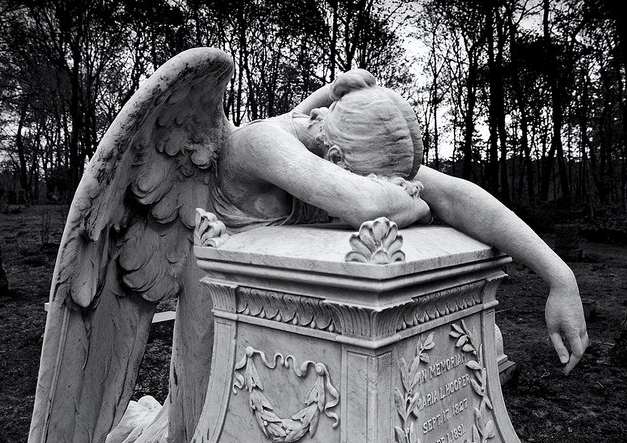When a loved one departs there is grief. This grief sometimes challenges our faith and shakes us to our core: How can God allow such a thing to happen? Why do good people die early? Why do I have to suffer? Why me?
The following five stages of grief are well known:
1. Denial
The grieving person shuts out reality and refuses to accept it.
2. Anger
Moving past denial, the grieving person is confronted with the truth and is angry with himself or herself, or with others, or with God.
3. Bargaining
The grieving person tries to negotiate an alternative. The person struggles with questions like “If only I had done this, or that…”
4. Depression
The grieving person comes up with questions like: What is the point? Why bother?
5. Acceptance
The grieving person reaches a state where he or she is not consumed by grief. The person accepts the hole in the heart but is able to move on. Not everybody facing grief is fortunate to reach this state. The realization that our heart is a big place where both sorrow and joy can reside simultaneously is a tremendous gift.
How do we ensure that we reach “acceptance”, the final state of the grieving process? How do we make sure that we do not get stuck at some earlier state and consequently live our life incompletely? Remaining stuck in our grieving process denies us from enjoying what we have and what is possible.
Only those who have been through soul searing loss truly understand the full scope of the grieving process. This essay in no way tries to diminish or trivialize the pain or the difficulty of the process.
While the grieving process is well understood, the sources of grief are not well known. If we understand the legs on which our grief stands we are better positioned to deal with it. There are three legs on which grief stands:
1. Something bad has happened to the person who has passed away.
2. It is not fair. The person deserved to live. I deserve better.
3. I miss the person.
Bullets one and two above are “cosmological” questions that go to the root of our faith and our spirituality. If our spirituality is only intellectual then we struggle with these questions. But if our surrender has reached such a state that we have touched an inner level of peace then we have some recourse to go to. Sometimes the grieving process cracks open the shell and leads us to this peace, and becomes the source of our spiritual progress.
When we are able to acknowledge that nothing really bad has happened to the person who has passed away that is a big step forward. The understanding that our conscious experience transcends our mind and body is a giant leap. This leads to the acceptance that the conscious experience is a journey and there are many passengers along the way. Many passengers will repeatedly join us during this journey. Others will show up only once. This larger context gives our sense of fairness a new perspective. This understanding allows us to accept our loss without feeling wronged.
Yoga too can help us find acceptance of deep soul searing losses. This comes from the surrender to the deep inner peace that we experience from our practice of yoga.
“I miss the person” is then the only thing that we are left with. That hole in the heart shall remain forever. The acceptance process does not require us to either forget the person or bury the hole. Waves of grief may visit us years into the future. The beauty of our conscious experience is that these feelings of grief are perfectly able to coexist with feelings of gratitude and joy. Our heart is able to expand and accept everything that the conscious experience has to offer, and below the surface turmoil of emotions it is able to rely on the underlying layer of peace and bliss to sustain itself.
Related:
What Happens At The Time Of Death?
Your Pain Is Breaking Of The Shell
Credits:This has been written by Raj Shah and edited by Ketna Shah.

